Kare11
Family harvests corn after suicide of farmer who planted it
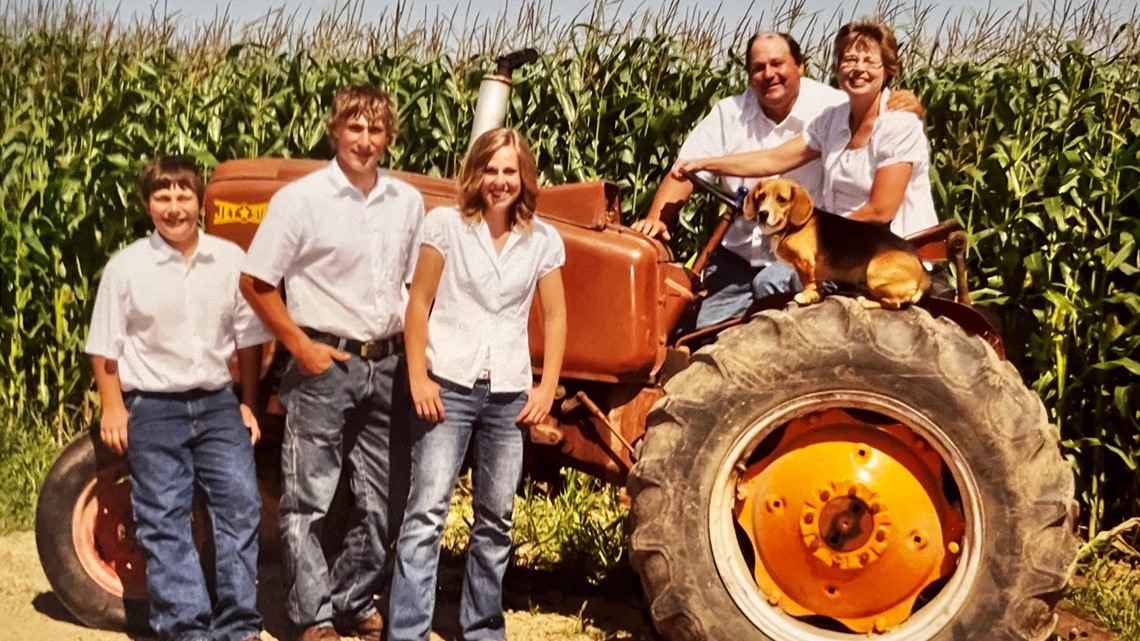
Brian Webster’s family shares a message about farmers and depression.
ELLSWORTH, Wis. — One-hundred 43 harvests have come and gone since the 1880 founding of the Webster farm.
But this one feels different to Mitchell Webster.
“I’m not used to driving the combine,” says the young man behind the wheel of the hulking machine.
Standing at the edge of the cornfield, Mitchell’s sister Jennifer agrees. This fall’s harvest doesn’t feel right.
“That’s dad’s office, he’s supposed to be in there,” she says, looking off toward the combine.
Brian Webster would be in the combine cab, bringing in the corn crop he planted last spring, if not for the morning of Aug. 3.
Brian’s wife Kim found him that day at his semi-truck.
At age 58, Brian had died by suicide.
“He was my love of my life,” Kim says through her tears. “I just wish he would have talked to me.”
The Webster’s story is all too familiar.


The National Rural Health Association says the suicide rate among farmers is 3.5 times the general population.
Key reasons cited by the group ring true to Brian’s family.
“You’re at the mercy of all these different obstacles,” Jennifer says. “And a lot of it you don’t have control over.”
Unpredictable weather and financial pressures bear down hard on farmers, who are often reluctant to seek mental health care.
“There’s still a pretty big stigma around mental health and keeping your feelings to yourself.” Jennifer says. “It’s a very, unfortunately, still a common thing in agriculture.”
Brian’s family decided to address the stigma head on in his obituary, writing – in the first line – that Brian had died from “complications with depression.”
Few of Brian’s neighbors knew he had struggled with the mental illness that had run in his family.
The condition was passed on again to Brian’s youngest son, Thomas.

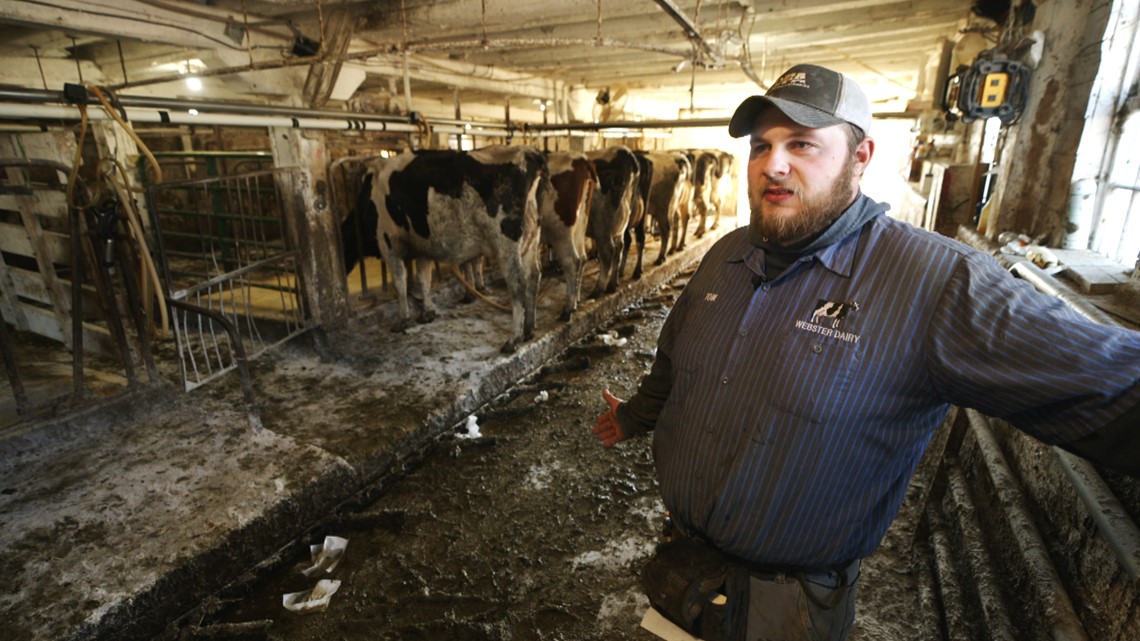
“People judge me, I guess, whatever, it’s a real thing,” Thomas says as he stops to take a breath while milking the family’s 75 cows. “It’s an illness, but I’m not scared to let people know I have it.”
Once a month, between milkings, he drives from Ellsworth, Wisconsin to Red Wing, Minnesota to see a therapist.
“Talking to people about it makes me feel better, I mean, that’s what seems to help me,” he says.
Brian had also sought medical help. His doctor had switched him to a new anti-depressant shortly before he died.
“It’s really hard to know what was the tipping point exactly, if there was one thing, if there was multiple things,” Jennifer says. “It’s hard for me to make sense that he’s not here.”


Brian’s family buried him next to his parents within sight of his farm.
Then, a few weeks later, they emailed KARE 11 asked for help sharing their story.
The Websters had some things they wanted to say.
“I want farmers to know,” Brian’s wife says, before broadening her message. “Not just farmers, just anybody.”
Kim, a commodities trader, has taken a lead role in the family’s outreach efforts.
“It’s okay to talk about it, it’s okay to get help, it’s okay to be on medication, it’s okay to not be okay,” she says.
The Websters have set aside memorial money from Brian’s funeral to help bring the Farmer Angel Network to western Wisconsin. The organization, launched in southern Wisconsin, is made up primarily of farmers helping other farmers who are dealing with depression.

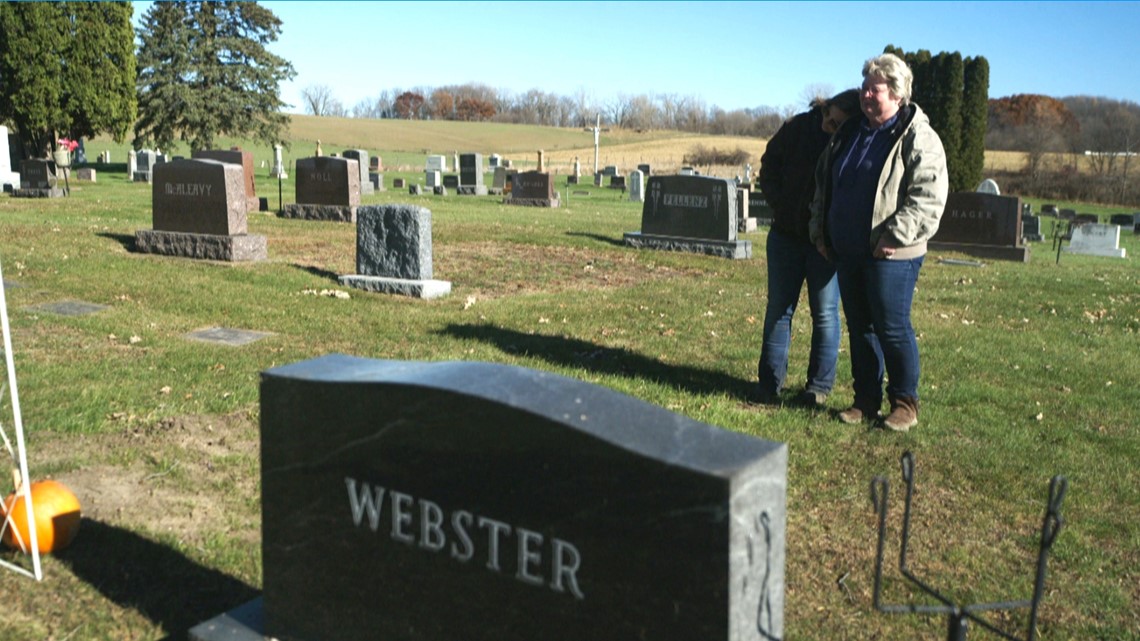
The family has established a GoFundMe page to raise additional funds for the project.
The Websters know, though private, the former combine driver had another attribute.
“Dad always wanted to help people,” Mitchell says. “If he could help somebody, he would.”

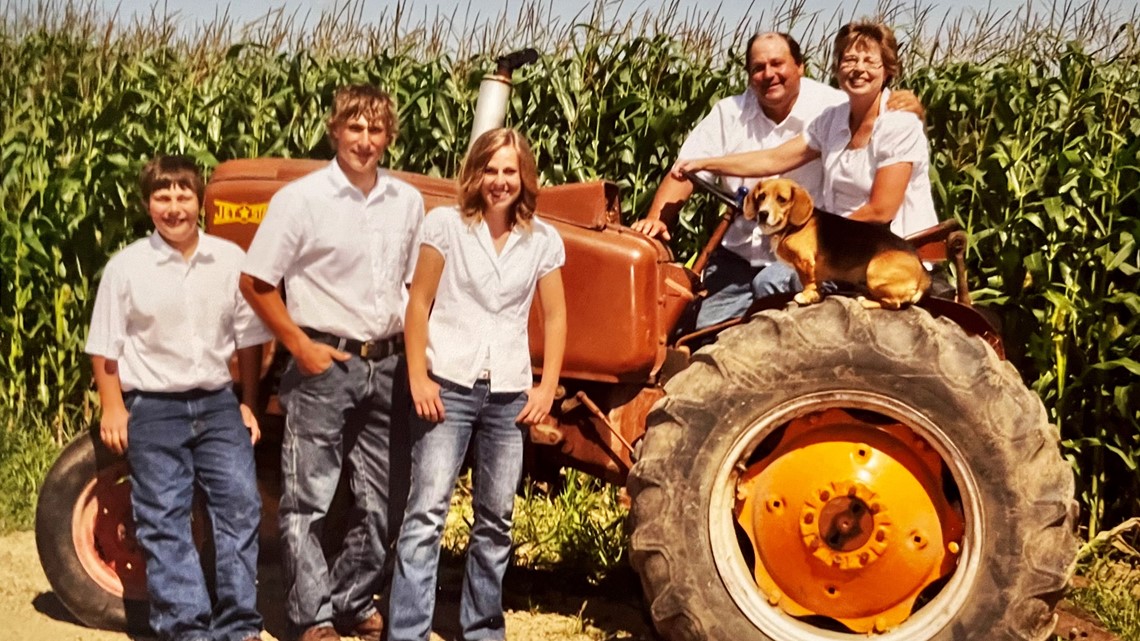
Helping now seems like the one thing that could bring some healing to this hurtful harvest.
“Please go get help,” Jennifer says. “There’s really no shame in getting help.”
If you or someone you know is facing a mental health crisis, there is help available from the following resources:
Watch the latest videos from the Land of 10,000 Stories in our YouTube playlist and subscribe to the Land of 10,000 Stories Complete Collection on YouTube.
Kare11
Adam Fravel to be sentenced Tuesday in murder of Maddi Kingsbury
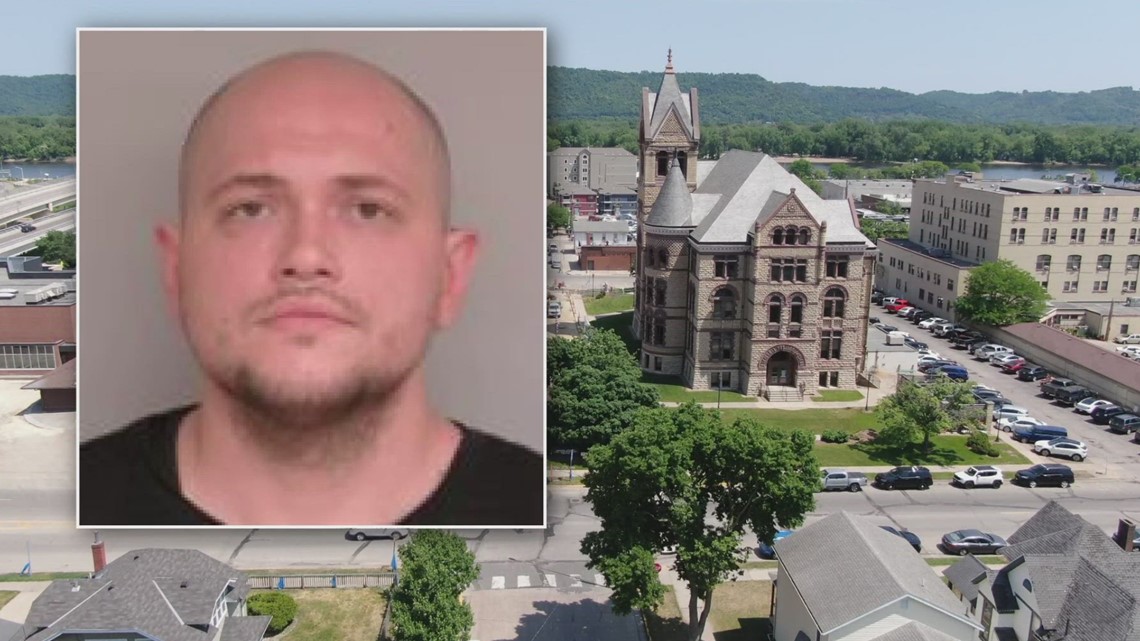

While Fravel will receive a mandatory life sentence without parole for his partner’s murder, no one knows what Maddi’s family or the judge will say in court.
WINONA, Minn. — The sentencing of Adam Fravel Tuesday afternoon will bring a heart-wrenching murder case to a close, but the family of Maddi Kingsbury will never be the same.
Fravel will be in a Winona County courtroom at 1:45 p.m. for the official sentencing, although it’s already known he will receive a mandatory life sentence with no chance at parole after being convicted of first-degree premeditated murder on Nov. 7.
A Blue Earth County jury also found Fravel guilty on three other murder counts: first-degree with a pattern of domestic abuse, second-degree intentional murder, and second-degree murder while in the commission of a felony.
The trial was moved from Winona County to Mankato due to pre-trial publicity, and the challenge of seating an unbiased jury.
What is unknown, is what Kingsbury’s family and friends will say during victim impact statements, and how Judge Nancy Buytendorp will address the defendant before committing him to prison for the rest of his life.
Fravel will also given the opportunity to speak, but it is unknown if he will do so. He chose not to testify during his trial.
The proceedings will be broadcast live as cameras will be allowed in the courtroom, something still relatively uncommon in Minnesota.
Maddi Kingsbury was reported missing on March 31, 2023, after she and Fravel dropped their daughter and son off at a daycare not far from their home in Winona. She was reported missing by friends and family that evening after they couldn’t contact her.
A series of massive searches conducted in Winona and Fillmore Counties united the community and brought in volunteers from across Minnesota and the country to help.
Maddi’s remains were found weeks later on June 7, in a remote culvert near the community of Mabel, where Fravel’s parents live. A coroner from the Mayo Clinic determined her cause of death was homicide, and Fravel was arrested and convicted in the killing.
Kare11
‘A Christmas Celebration with The Steeles’ shares traditional concert


In a longstanding tradition, “A Christmas Celebration with The Steeles” will take place at Pantages Theatre on Dec. 21-22.
This will be the 40th anniversary of the singing siblings concert in Minnesota. The five Steeles have recorded and performed with Prince, Morgan Freeman, the Saint Paul Chamber Orchestra and many more notable artists.
The Steeles visited KARE 11 News at Noon to share more about their upcoming event.
Kare11
Man shot, officers on leave after incident in western Wisconsin


St. Croix Tribal police were called to a residence in Webster just before 6 p.m. Monday and encountered a man with a knife. One officer fired his weapon.
WEBSTER, Wisconsin — A man is hospitalized and multiple police officers are on administrative leave following a shooting in Webster Monday evening.
The Wisconsin Division of Criminal Investigation (DCI) says the officer-involved shooting happened in the community of Webster shortly before 6 p.m. St. Croix Tribal Police were dispatched to a home in the 24000 block of Eagle Feather Dr. and upon arrival officers say they encountered a man with a knife. At some point in the encounter one officer fired his weapon, hitting the knife-wielding man.
DCI says the man who was shot was airlifted to a hospital in Minnesota, where he remains. There is no word on the man’s condition.
Burnett County sheriff’s officials called in the DCI to lead the investigation into the shooting. The officers involved in the incident have been placed on administrative leave, as is common in most officer-involved shootings.
Once the DCI investigation is concluded, reports will be turned over to the Burnett County Attorney’s Office to determine whether charges are warranted in the incident.




GIPHY App Key not set. Please check settings